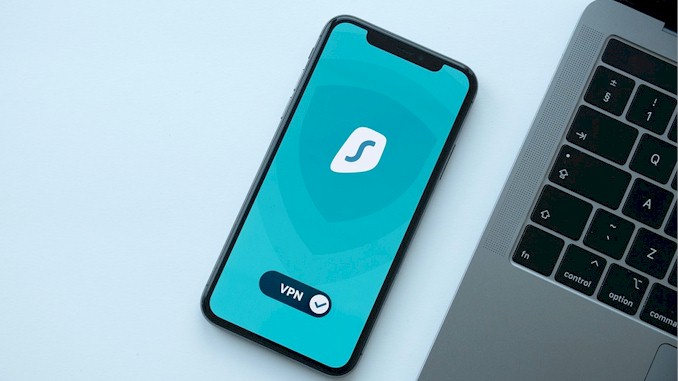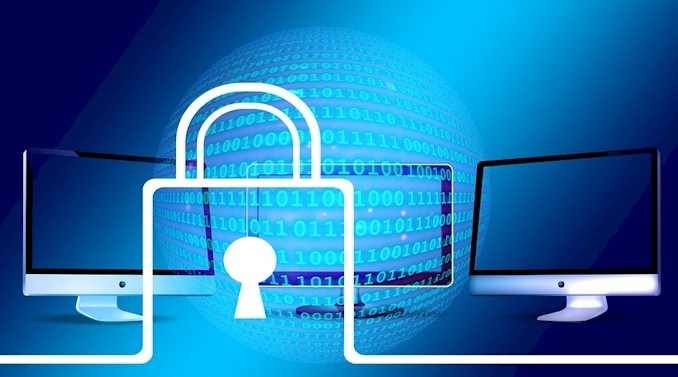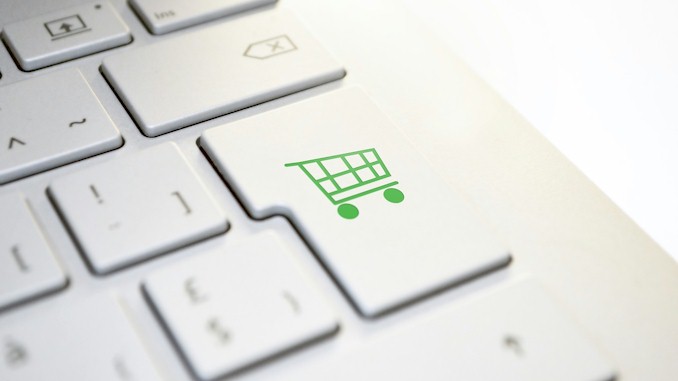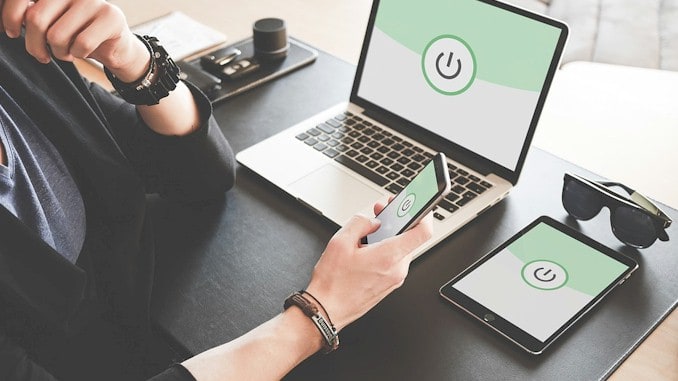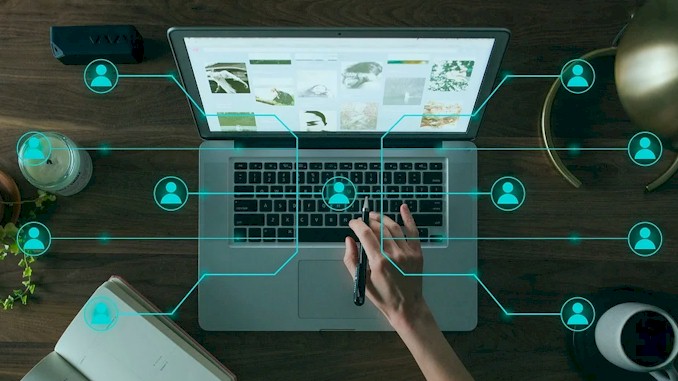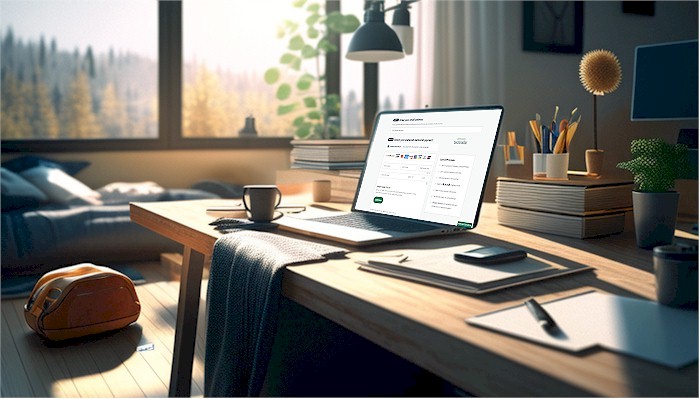Can VPN damage your phone? Why should I have one?
Once at a family party, some cousins approached me and asked about VPNs. They even posed a rather peculiar question in my opinion: can VPNs damage your phone? Intrigued, I decided to research the topic and write an article about it. If you happen to have the same question, I hope this article will provide some clarity.
A VPN typically won’t damage your phone, but using an unethical provider can introduce malware that might cause overheating and potential physical damage. To mitigate these risks, it’s crucial to select a reputable VPN provider.
But there’s more to know about VPNs than just potential phone damage. In my research, I’ve uncovered a wealth of information about how VPNs work, why they’re important, and how to choose the right one for your needs. So if you’re curious about whether a VPN is right for you or just want to learn more about this important cybersecurity tool, keep reading. I’m confident that by the end of this article, you’ll have a much better understanding of how VPNs work and why they’re a must-have for anyone who values their online privacy and security.
How VPNs Can Potentially Damage Your Phone
While VPNs themselves are not likely to cause physical damage to your phone, there are some potential risks to consider. One of the main concerns is the potential for malware to be introduced to your device through a VPN connection. Malware is a type of software that is designed to cause harm to your device or steal your personal information.
For example, some VPNs may come with pre-installed malware, one of them is a particularly insidious type of crypto-mining malware known as Loapi. This malware will make use of a phone’s processor to mine cryptocurrency, overworking the CPU and causing the phone to overheat to the point of explosion.

Another potential risk is that a VPN may cause your phone to overheat. While most modern phones have built-in cooling mechanisms to manage their temperature, a VPN can still cause your device to work harder than usual, which can generate excess heat. Over time, this can cause your phone’s battery to wear out more quickly or even damage it to the point of physical harm.
But perhaps the biggest risk associated with using a VPN is the potential for hackers to exploit vulnerabilities in the software. For example, a hacker could use a VPN connection to gain access to your device and steal sensitive data or install malware. In some cases, they may even be able to take control of your device entirely, potentially causing physical damage to your phone.
It’s important to note, however, that these risks are generally quite low if you choose a reputable VPN provider and take steps to protect your device. In the next sections, we’ll cover how to choose a trustworthy VPN and how to maximize the security and effectiveness of your VPN to minimize these risks.
How VPNs Work: A Beginner’s Guide
If you’re new to the world of VPNs, it can be overwhelming to understand how they work. In essence, a VPN (Virtual Private Network) is a type of secure connection between your device and the internet. It does this by routing your internet traffic through a private server before it reaches the internet. Let’s break it down into components.
- Encryption: One of the primary functions of a VPN is encryption. When you connect to a VPN, your device encrypts your data, making it unreadable to anyone who might intercept it. The VPN server then decrypts your data and sends it to its final destination. This ensures that your online activity, including your web searches, online transactions, and personal information, is protected from hackers and cybercriminals.
- Tunneling: When you use a VPN, your data is sent through an encrypted tunnel to the VPN server. This tunnel provides an additional layer of security and privacy for your online activity. It also hides your IP address, making it difficult for websites and advertisers to track your online behavior.
- VPN Protocols: VPN protocols are the methods used by VPNs to create secure connections between your device and the internet. There are several VPN protocols available, including OpenVPN, IKEv2, Wirdguard, and ExpressVPN’s Lightway. Each protocol has its own strengths and weaknesses, so it’s important to choose the right one for your needs.
- VPN Servers: VPN servers are the backbone of any VPN service. These servers are located all around the world and are used to route your internet traffic through a private connection. When you connect to a VPN server, you can choose which server location you want to use. This allows you to bypass geographic restrictions and access content that might be blocked in your region.
- VPN Clients: To use a VPN, you’ll need to download a VPN client onto your device, such as your smartphone. This client is a software application that connects your device to the VPN server. It allows you to select your preferred VPN protocol, choose a server location, and manage your connection settings.
As you have learned, the way a VPN functions is by encrypting the content you access online, redirecting it via a secret server, and masking your IP address. This gives your online activities an extra degree of protection and privacy, gets around geographical limitations, and lets you access stuff that could be restricted in your area.
Choosing a Reputable VPN Provider: What to Look For
When choosing a VPN provider, it is essential to consider several factors to ensure that you choose a reputable and trustworthy one. Here are some of the factors to consider:
- Security: The VPN provider should offer strong encryption and security protocols to protect your data and privacy.
- No-logging policy: The VPN provider should have a strict no-logging policy to ensure that your online activities remain private and cannot be traced back to you. And this practice is verified and audited by a reputable third party.
- Speed and performance: The VPN should offer fast and reliable performance without any noticeable impact on your internet speed.
- Server locations: The VPN provider should have servers in the locations you need to access, and the more servers they have, the better.
- Compatibility: The VPN should be compatible with all the devices you use, including desktops, laptops, smartphones, and tablets.
- Customer support: The VPN provider should offer reliable and responsive customer support to assist you whenever you have any issues or questions.
- Reputation and user reviews: Before choosing a VPN provider, it is essential to research the company’s reputation and read user reviews to get an idea of their level of service and support.
Overall, by considering these factors and doing your research, you can choose a reputable VPN provider that offers the security, privacy, and performance you need to protect your online activities. Actually, ExpressVPN is a foolproof choice when you want to pick a reputable VPN service, it has all features metioned above.
Benefits of Using a VPN on Your Mobile Device
Using a VPN on your mobile device can offer several benefits, including:
- Enhanced Security: When you use a VPN on your mobile device, all your data is encrypted, making it difficult for hackers or anyone else to intercept your information. This is especially important when using public Wi-Fi networks, which are often insecure and can be easily hacked.
- Anonymity: VPNs can mask your IP address, making it harder for advertisers to track your online activities. This also makes it more difficult for websites to track your location, making it harder for them to serve targeted ads.
- Access to Geo-Restricted Content: With a VPN, you can access geo-restricted content that would otherwise be unavailable in your region. For example, if you are traveling abroad and want to watch your favorite TV show, a VPN can help you bypass geographic restrictions.
- Avoiding Throttling: Some ISPs throttle their users’ internet speeds when they detect data-heavy activities like streaming or torrenting. Using a VPN can mask your internet activities, preventing your ISP from throttling your speeds.
- Privacy: Using a VPN on your mobile device can help protect your privacy. VPNs can prevent your internet service provider (ISP) from logging your activities and selling your data to third-party companies.
When choosing a VPN for your mobile device, make sure to choose a reputable provider with a proven track record of protecting user data. Look for VPNs with strong encryption, a strict no-logs policy, and fast server speeds. Additionally, make sure the VPN has servers located in the countries you need to access geo-restricted content.
Tips for Maximizing the Security and Effectiveness of Your VPN
Now that you understand how VPNs work and the benefits of using one on your mobile device, it’s important to make sure you’re getting the most out of your VPN and using it safely and effectively. Here are some tips to keep in mind:
- Keep your VPN up-to-date: Just like any other software, VPNs need regular updates to stay secure and effective. Make sure you’re using the latest version of your VPN app and that you’re updating it regularly.
- Choose a reputable VPN provider: As mentioned earlier, not all VPN providers are created equal. Do your research and choose a provider that has a good reputation and a solid track record of protecting user privacy.
- Use strong passwords and two-factor authentication: Protect your VPN account with a strong, unique password and enable two-factor authentication for an extra layer of security.
- Avoid free VPN services: While free VPNs may be tempting, they often come with hidden costs, such as selling your data to third-party advertisers. Stick with a paid VPN service for better security and privacy.
- Enable kill switch and DNS leak protection: Most reputable VPN providers offer a kill switch and DNS leak protection to prevent your data from leaking if your VPN connection drops. Make sure to enable these features in your VPN settings.
- Use a multi-hop VPN: Some VPNs offer the option to route your traffic through multiple servers, adding an extra layer of security and privacy. Consider using a multi-hop VPN if you need extra protection.
By following these tips, you can maximize the security and effectiveness of your VPN and keep your mobile device safe and secure while browsing the internet.
Do VPNs Work On Mobile Data
Yes, VPNs can work over mobile data networks. In fact, VPNs are often used on mobile devices to provide additional security and privacy when using public Wi-Fi or cellular networks.
When a device is connected to a cellular network(Some people say it is mobile data), it is assigned an IP address by the mobile network operator. This IP address is used to route packets between the device and the internet. When the phone uses the VPN to establish a VPN connection, the VPN software intercepts packets sent from and received by the device and routes them through the VPN tunnel, regardless of whether the device is connected to a Wi-Fi network or a cellular network.
If you want to know more, here is how it works:
The VPN typically uses the source and destination IP addresses to determine whether a packet should be routed through the VPN tunnel or to the local network.
When a device, such as a smartphone, establishes a VPN connection, it creates a virtual network interface that is used for VPN traffic. When a packet is sent from the device, the VPN software intercepts the packet and examines the destination IP address. If the destination IP address is within the range of the VPN’s network, the VPN software will route the packet through the VPN tunnel via the virtual network interface. If the destination IP address is outside the range of the VPN’s network, the VPN software will route the packet to the local network via another network interface, such as Wi-Fi or cellular.
Similarly, when the device receives a packet, the VPN software examines the source IP address to determine whether the packet was sent through the VPN tunnel or through another network interface. If the packet is sent through the VPN tunnel, the VPN software will route it to the virtual network interface. If the packet is sent through another network interface, the VPN software will route it to the appropriate interface based on the destination IP address.
You can see that the VPN takes action based on the source and destination IP addresses in the packet, regardless of whether the packet was transmitted over a cellular network or a traditional TCP/IP network.
When a packet is sent from a device, the network stack on the device will determine the appropriate network interface to use for the transmission based on the destination IP address and the routing table. The network stack doesn’t distinguish between cellular and TCP/IP networks when making this decision.
Similarly, when a packet is received by the device, the network stack will route the packet to the appropriate interface based on the destination IP address and the routing table, regardless of whether the packet was transmitted over a cellular network or a TCP/IP network.
The VPN software intercepts packets at a lower level in the network stack and examines the source and destination IP addresses to determine whether the packet should be routed through the VPN tunnel or to the local network. The network stack on the device still handles the actual transmission of the packet over the appropriate network interface.
Hope I have explained clearly to you about while it’s possbile that your mobile phone could be damaged by using a VPN. It’s extremely rare and running a VPN on your phone would be a good approach as the first step to protect your privacy and ensure security.
Related Questions
Is it safe to use a free VPN on my phone? While there are some reputable free VPN services available, many free VPNs are not safe to use. These services often collect and sell user data, contain malware, or have other security vulnerabilities.
Do I need to use a VPN on my phone if I only use it for personal use? While a VPN is not essential for personal use, it can provide an extra layer of security and privacy. If you frequently use public Wi-Fi networks or are concerned about your online privacy, using a VPN on your phone is a good idea.
Can I use a VPN on my phone without affecting my internet speed? While a VPN can potentially slow down your internet connection due to the extra encryption and routing, most reputable VPN services are designed to minimize this effect as much as possible. Additionally, you can choose to connect to a VPN server that is geographically closer to your location to reduce latency and improve speeds. So, it is possible to use a VPN on your phone without significantly affecting your internet speed as long as you choose a reputable VPN service and take some precautions.

